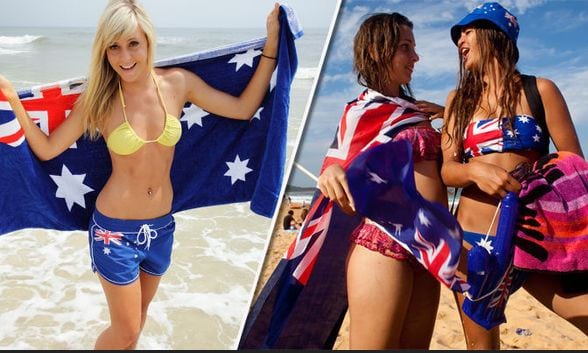The number of Australians arrested overseas has increased by a quarter in the past five years with the US, Thailand and China emerging as the top destinations where travellers are encountering legal troubles.
And while more Australians are running foul of the law, a new study has found our travellers are often undeterred by government safety warnings.
Foreign Minister Marise Payne, launching the Department of Foreign Affairs and Trade (DFAT) annual State of Play report in Sydney on Monday, warned Australians to familiarise themselves with possible legal differences in their travel destinations.
A total of 1572 cases of arrest and immigration detention were recorded around the world between April 2018 and March 2019, and 400 were imprisoned.
“Australians should be obliged to know and understand the laws of the countries in which they’re travelling. They won’t be the same as Australia,” Ms Payne told reporters.
“There are differences all over the world and so the importance of knowing what the laws are where you are going, what you’re required to do is very, very important.”
Of the 229 cases of Australians requiring consular assistance in the US, more than half were immigration-related.
There was a 30 per cent rise in arrest and detention cases in Thailand, which the department attributed to a tightening of the country’s immigration policy.
Drug-related arrests in Thailand were also up.
The Philippines and Indonesia replaced the UAE and Japan as the fourth and fifth most likely countries for Australians to be arrested.
Exotic but dangerous
The warning comes as new research suggests Australian travellers have developed a taste for exotic, but often dangerous, destinations.
The study of 1100 prospective travellers, conducted by DFAT’s Smart Traveller website and the Insurance Council of Australia, found that 32 per cent of respondents would probably still visit a country if the travel advice level was raised to a Level 3 warning (reconsider your need to travel).
Of those who would still travel, 25 per cent said ‘the appeal of the destination justified the risk’.
Some 87 per cent of Australians looking to travel overseas said they were attracted to destinations that carry risk, or are off the beaten track, with 60 per cent of travellers under 30 saying they are attracted to places that feel adventurous.
Destinations that carry a Smart Traveller Level 3 warning include Bangladesh, Bolivia, Haiti and North Korea.
Countries with a Level 4 warning, meaning ‘Do Not Travel’, include Afghanistan, Burundi, Libya, Iraq, Syria, Venezuela, Yemen, Somalia, South Sudan and the Central African Republic.
Ms Payne said the cases of support for bereaved families whose loved ones have died overseas rose to 1695, an increase of almost one-third in the past five years, the report says.
Most deaths were from natural causes or illness and happened in Thailand, which is in the top five most-visited countries by Australians.
Some deaths also took place in the period before April 2018, with DFAT providing consular support over months or years.
Australians, who made 11 million overseas trips in 2018-19 – up by a fifth in five years – asked for help in 13,715 cases, for issues ranging from theft to hospitalisation to death.
The Sri Lanka bombings and Christchurch mosque attacks resulted in an overall increase in cases because the department was called on to help track loved ones.
Calls for help
But not all requests for help from DFAT were as urgent or concerning.
A panicked Australian, eager to head off to Bali, called for consular help after an airline refused them because they claimed a bird had eaten their ID.
“What could possibly go wrong on that Bali trip?” Ms Payne asked.
Meanwhile, in Puerto Rico, an Australian who wanted to change hotels decided to ring the department to see if they could help them in their endeavour by ordering an Uber.
Another caller asked for diplomatic immunity – despite still living in Australia.
But “perhaps the strangest” of all requests received in the 2018-19 financial year was from a person keen to sell eggs in Pyongyang.
“Ok, I thought,” Ms Payne said.
“Except that the second question was ‘Could DFAT please ascertain whether North Koreans prefer white or brown eggs’?”




